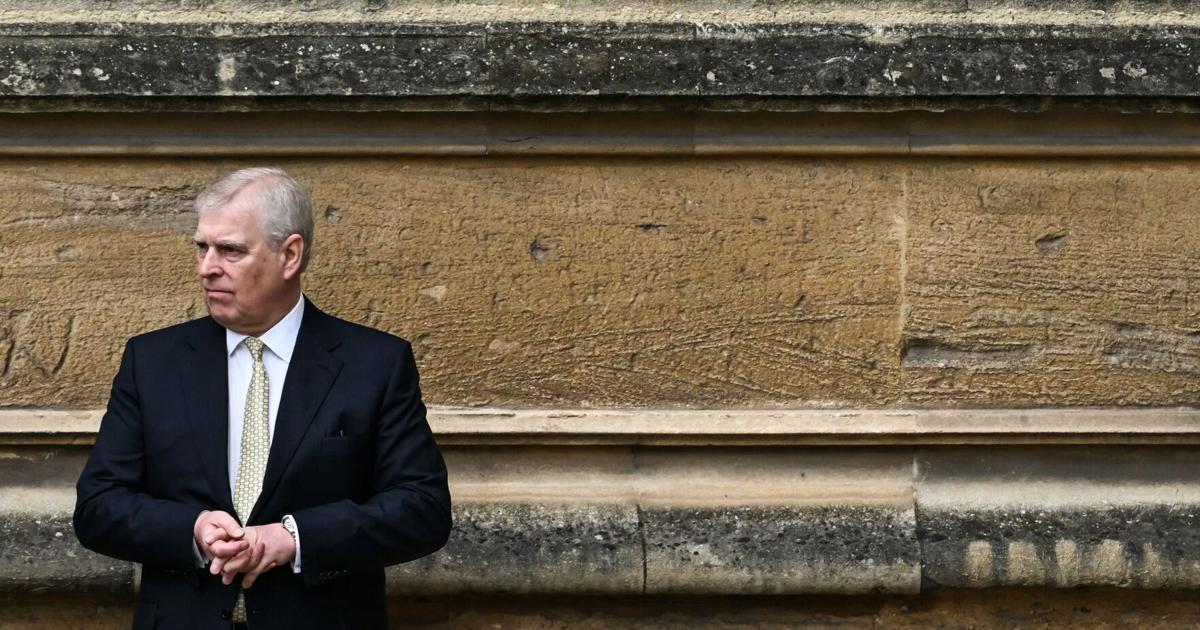It was “salt the earth” time for the House of Windsor. King Charles III did what monarchs do when their thrones are being threatened: eliminate the danger and make sure it never returns. Monarchies survive by evolving with slow precision, usually a pace or two behind society, but sometimes a sudden lurch is essential. In this case, that danger was the monarch’s own brother. On Thursday, Charles stripped Andrew of his royal titles and banished him to live on the monarch’s private Sandringham estate in Norfolk, far away from the media and the big family events that he loved attending.
Like his big brother, Andrew was a prince from the moment of his birth, thanks to the Letters Patent of 1917. He became the Duke of York on his wedding day in 1986. On Oct. 30, the King reduced his brother to commoner status with the name of Mr. Andrew Mountbatten Windsor. In a humiliating coup de gras, royal officials figured out a legal way to kick Andrew out of Royal Lodge, his grand 30-room mansion on a 40-hectare spread near Windsor Castle.
This dramatic action by Charles involved using his own Royal Prerogative, those powers and privileges held by the monarch. Such decisive actions may have started with Andrew, but the fallout could spread well beyond that 65-year-old to other high profile members of the Windsor clan, such as a certain couple living in Montecito, who have spent the past five years generating negative headlines for the royal family.
An unshakable Epstein connection
Andrew’s humiliating descent from Falklands war hero to royal disgrace is unprecedented in modern times, and entirely of his own making. He squandered his privileged position through his arrogance, boorish and allegedly abusive behaviour and his relationships with shady financiers and politicians who helped him enjoy the lavish lifestyle he thought befitted his position yet which his royal bank account couldn’t support. Every time the palace attempted to ease the scandal-plagued royal away from the limelight, he elbowed his way back onto the royal centre stage.
In particular, Prince Andrew’s relationship with convicted pedophile and extremely wealthy financier Jeffrey Epstein had hung like a millstone around the throne for the last 15 years. With each major Epstein scandal, the monarch took more of the perks and privileges that Andrew cherished as confirmation of his high royal status. In 2019, his mother, Elizabeth II, took away his role as a working royal, then, in 2022, she stopped him using the “Royal Highness” style, and removed his military and other royal affiliations.
Andrew always claimed to have put his duty to family and country first, yet showed no sign of thinking of others, especially the young girls who were abused by Epstein, including the late Virginia Giuffre who said she was forced to have sex with Andrew three times when she was a teenager. Andrew’s entire life can be summed up by a quip posted after his disastrous BBC interview in 2019. “I expected a train wreck,” tweeted Charlie Proctor, then the editor-in-chief of the Royal Central website. “That was a plane crashing into an oil tanker, causing a tsunami, triggering a nuclear explosion-level bad.”
In recent months, newly released emails revealed that Andrew and his ex-wife, Sarah Ferguson, had a far deeper relationship with Epstein, which went on far longer than they publicly acknowledged. Especially damaging was the revelation in the Sun newspaper that Prince Andrew sent a jokey email — “We are in this together” and “We’ll play some more soon” — to Epstein in 2011, months after he later publicly stated he’d cut relations with the convicted pedophile. Those revelations, combined with his involvement in an alleged Chinese spy scandal, forced his brother, King Charles III, to officially destroy his brother’s royal persona in two related actions in October.
Prince William’s involvement
Most importantly, Charles III talked about the “Andrew situation” with his son, Prince William. If the King was in overall charge of solving the festering problem, then his heir was pushing him to make it as absolute as possible.
The depth of William’s concerns about his uncle Andrew could be seen during their interaction at the funeral of the Duchess of Kent on September 16. While the royal family was grieving for a beloved member of their family, Andrew and Sarah could be seen giggling and laughing as they grabbed prime positions in front of the cathedral after the funeral. In one deeply uncomfortable moment, Andrew sidled up to William and attempted to strike up a friendly conversation. William froze him out, refusing to respond.
With Andrew packing for his internal exile in windswept Norfolk, the royals living in Montecito, California have to be nervous about the precedent that was just set. Harry clings to his Duke of Sussex title as well as his princely title the same way his uncle clenched onto his titles and honours. While King Charles seems to want a reconciliation with Harry, there’s no sign of rapprochement from Prince William, which raises the prescient question of whether William will move against his own brother the same way Charles acted against his younger sibling.
Rocky road to a modern monarchy
If such a move comes, it may be part of a larger, long overdue shakeup within the House of Windsor. While King Charles has achieved his goal of slimming down the number of royals who work on behalf of the monarch to a rapidly aging group of 10 Windsors, the next retrenchment issue will be the problem of too many private members of the family holding royal titles and styles, meaning they can exploit those exclusive titles for financial gain. Right now, there are six who fill those criteria: Harry, Meghan, their children Archie and Lilibet, as well as Andrew and Sarah’s daughters, Beatrice and Eugenie.
The last time the monarch did a wholesale revision of the rules governing royal title was in 1917 when King George V issued Letters Patent that removed titles from a swath of royals deemed tangential to the succession, including a three-year-old great-grandson of Queen Victoria, as David Torrance explains in a recent parliamentary briefing paper.
More recently, Europe’s royal houses have been slimming down who gets those royal titles. In 2019, Sweden’s monarch took “royal highness” styles away from a growing brood of grandchildren not in the direct line of succession. In 2022, Queen Margrethe of Denmark “future proofed” the monarchy by abruptly removing royal styles and titles from the four children of her younger son, who angrily criticized his mother’s decision.
A few hours before King Charles took his latest action against his brother, a YouGov poll showed that while 91 per cent of Britons have a negative opinion of Andrew, overall popularity of the royal family at 62 per cent, down a bit from 69 per cent in 2011, when Andrew’s first Epstein scandal broke.
A seven-point drop in popularity may not appear to be much for a monarchy that has survived centuries of turmoil, but the cumulative toll of 15 years of scandal, even from someone who is eighth in line to the throne, has to be of concern for the monarch, his heir, and their advisers. Now, they’ve sent a message to all of the royal family — stay on the straight and narrow path, or else.



